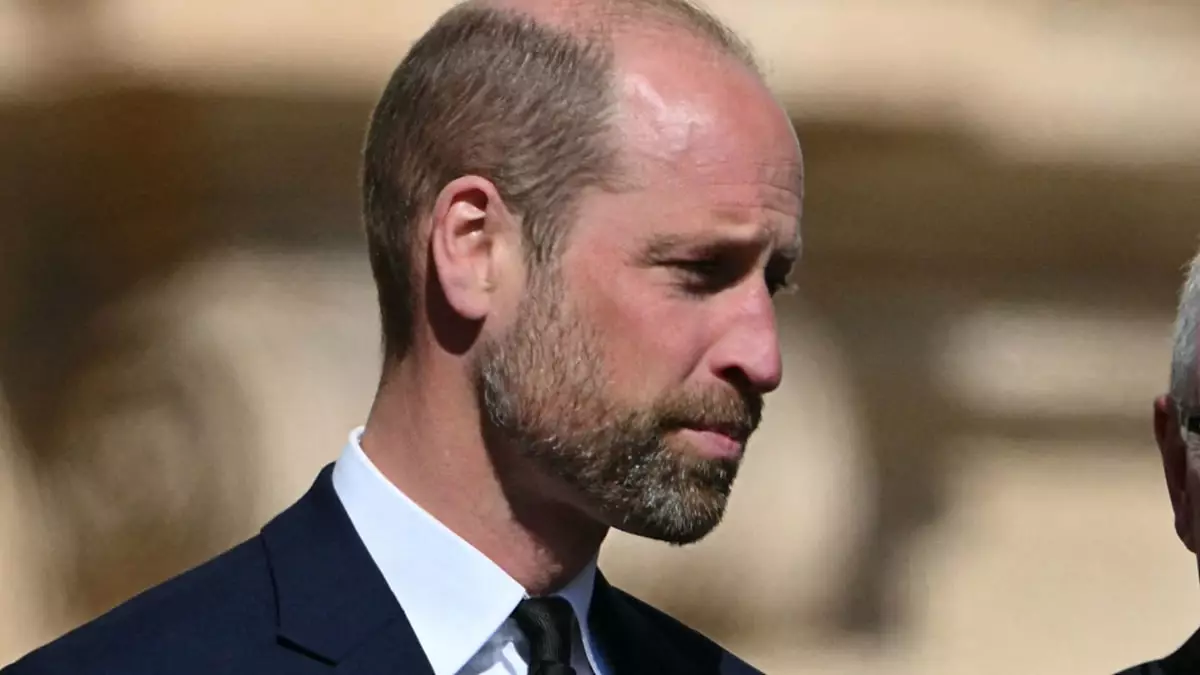In a world rife with political drama and ever-shifting societal expectations, Prince William’s presence at Pope Francis’s funeral has emerged as a beacon of poise and dignity. The Prince of Wales, who represented King Charles during this somber occasion in Vatican City, garnered immense praise for his understated yet commanding demeanor. Royal commentators and enthusiasts alike are hailing this moment as a profound insight into William’s potential future as king. One cannot help but notice how the essence of the royal family is encapsulated in this singular representation: composed elegance amidst solemnity.
William’s attendance was not merely a royal obligation, but a gesture rich in cultural significance. As the only British royal among a collection of global leaders, he stood as both a testament to his lineage and an ambassador of contemporary monarchy. His choice to engage in quiet reflection before the late Pope’s sealed coffin, alongside UK Prime Minister Sir Keir Starmer, epitomizes a class of leadership that values humility over spectacle—something that is increasingly rare in modern political landscapes.
Body Language: The Silent Communicator
Body language expert Judi James emphasized the significance of William’s conduct throughout the ceremony. She noted that his “close to invisible” presence was a profound compliment; it reflected a deep understanding of the moment’s gravity. In a time where many leaders find themselves embroiled in controversy or self-promotion, William’s ability to remain low-key while still commanding respect is an invaluable trait for a future monarch.
He demonstrated this with small yet poignant gestures, such as bowing his head in reflection, which resonate deeply during such emotionally-charged gatherings. This grace is a skill that sets him apart—not only from contemporary political figures but across the annals of history where the appearance of the royal family often lacked the authenticity that modern society craves. There is a certain elegance in his avoidance of grandstanding; it signals a burgeoning maturity that is integral to effective leadership.
A Partnership Built on Shared Values
Interestingly, Judi James draws attention to the similarities between William and his wife, Princess Kate, noting that both have mastered the art of respectful engagement. While Kate chose to remain home during the funeral, her absence underscored the cohesion of their partnership. Together, they embody a modern royal ethos that intertwines tradition with contemporaneity. Rather than seeking the spotlight, their approach implies that their shared values surpass mere appearances.
Their ability to navigate significant events without making them solely about themselves is refreshing, especially in an era where many leaders crave attention and validation. It is this kind of maturity that could define their reign as they continue to engage with their public on both personal and national levels.
A Glimpse into the Future
As the world watched William navigating the complexities of royal responsibility, it became clear that this moment was more than just a highlight reel of royal conduct. It marked a tipping point as the future king steps into a more prominent role in public life. With King Charles’s health concerns, William’s responsibilities have grown, and his adaptability is on full display.
What’s fascinating is how he intertwines his royal duties with personal passions, such as his ongoing commitment to environmental issues and the Homewards homelessness initiative. This balance demonstrates a kind of leadership that is rooted in empathy—a crucial quality as he prepares for his eventual ascension to the throne.
Prince William at the Pope’s funeral is not merely a snapshot in time; it serves as a harbinger of the monarchy’s future. His conduct not only wins admiration domestically but has begun to foster a positive perception internationally. As public sentiment sways, the evidence from such events suggests that the British monarchy may adapt and thrive under his eventual leadership, which could usher in a new age defined by dignity, respect, and a genuine connection to the people.

